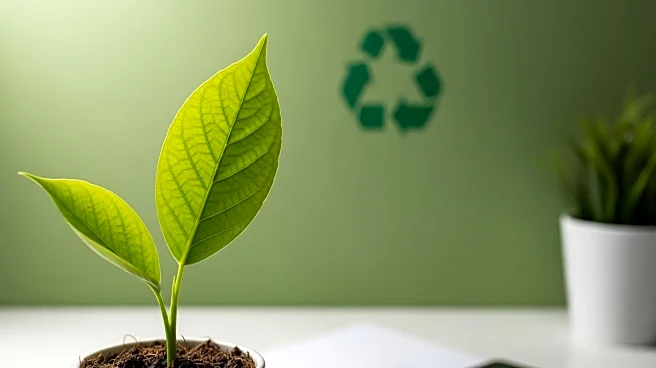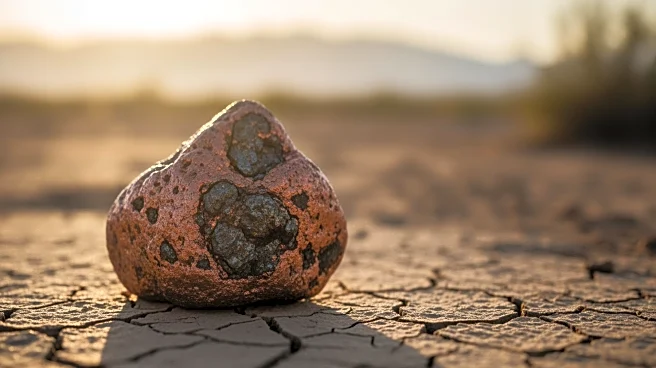What's Happening?
Braskem, a global leader in biopolymers, has announced the release of updated Life Cycle Assessment (LCA) studies for its I’m green™ bio-based product line, which includes HDPE, EVA, and PE WAX. These assessments, conducted in accordance with ISO standards, provide a comprehensive analysis of the environmental impacts of Braskem’s bio-based materials, which are derived from sugarcane ethanol. The updated data reflects enhanced methodologies and the latest scientific modeling techniques. The studies highlight significant carbon footprint reductions, with HDPE, EVA, and PE WAX showing net benefits of approximately 5 kg, 4.5 kg, and 4.7 kg of CO2e per kg, respectively, when replacing fossil-based alternatives. The products also demonstrate negative carbon footprints, confirming their role in carbon removal and climate change mitigation.
Why It's Important?
The release of these updated LCAs is significant as it underscores Braskem's commitment to sustainability and transparency. By quantifying the environmental benefits of its bio-based products, Braskem empowers industries such as footwear, packaging, cosmetics, and sporting goods to make informed, climate-conscious choices. This move aligns with global efforts to reduce carbon emissions and promote sustainable practices. The independent audit and critical review of the studies ensure data accuracy and objectivity, enhancing the credibility of Braskem's sustainability claims. As industries increasingly prioritize environmental responsibility, Braskem's bio-based products offer a viable alternative to traditional fossil-based materials, potentially influencing market trends and consumer preferences.
What's Next?
Braskem's continued focus on sustainability and innovation is likely to drive further advancements in bio-based materials. The company may expand its product line and explore new applications for its bio-based materials, potentially increasing its market share in the sustainable materials sector. Stakeholders, including businesses and environmental groups, may respond positively to Braskem's efforts, potentially leading to increased collaboration and partnerships. As regulatory pressures and consumer demand for sustainable products grow, Braskem's leadership in this area could set a benchmark for other companies in the industry.
Beyond the Headlines
The updated LCAs not only highlight the environmental benefits of Braskem's products but also reflect broader trends in the industry towards sustainability and circular economy practices. The focus on biogenic carbon uptake and negative carbon footprints indicates a shift towards materials that actively contribute to climate change mitigation. This development may encourage other companies to invest in similar technologies and methodologies, fostering innovation and competition in the sustainable materials market. Additionally, the emphasis on transparency and stakeholder engagement may influence corporate governance practices, promoting greater accountability and environmental stewardship across industries.










